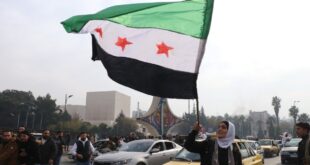Eng. Saleem Al-Batayneh
In the complex world of international economics, nations often turn to international institutions like the International Monetary Fund (IMF) and the World Bank for guidance and financial support during times of economic turmoil. These institutions present themselves as purveyors of structural economic reform, promising to lead countries towards development and prosperity. However, it is increasingly evident that the outcomes of these programs are far from what they promise, and Jordan’s experience serves as a poignant example.
Jordan, a nation grappling with its own economic struggles, has had a long and tumultuous history with the IMF’s economic reform programs. These programs, though well-intentioned, have, in many cases, failed to deliver the desired results and have even left countries submerged in debt. Jordan’s story is no different.
One cannot deny that Jordan faces severe economic challenges, including budget deficits, deficits in critical utilities like the National Electricity Company and the Water Authority, and imbalances in the balance of payments and the current account. However, despite multiple attempts to address these issues through IMF programs, the Jordanian economy continues to rely heavily on external aid, grants, loans, taxes, and fees. It remains ensnared in the vicious cycle of a unilateral rentier economy, lacking the diversification and production capacity necessary for genuine development.
Perhaps the most surprising turn of events occurred in 2004 when it appeared that Jordan had severed its ties with the IMF following the conclusion of a structural reform program that ran from 1989 to 2004. At that time, there was optimism that the IMF’s era had ended, having achieved some success in stabilizing the Jordanian dinar. However, this hiatus was short-lived, and in 2012, the IMF was called upon again to address mounting economic challenges, including a budget deficit exceeding 16% of the gross domestic product. The subsequent years saw not a revival of the Jordanian economy but a deepening crisis, marked by ballooning debt and structural imbalances.
The consequences of these programs have been felt most acutely by the Jordanian population, particularly the poor. Social protection systems have eroded, and a 2022 report by the World Bank estimated nearly four million Jordanians living in poverty out of a population of 11.3 million. Reduced spending in accordance with IMF directives led to a decline in economic growth rates, a deterioration of essential services like education and healthcare, and a worsening standard of living for Jordanians.
The situation has become dire, with unemployment rates skyrocketing and public sector jobs diminishing. What’s particularly concerning is that the IMF’s prescriptions seem to prioritize servicing external debt over addressing the needs of the people. Tax burdens in Jordan have surpassed those of many other countries, constituting a staggering 80% of the gross domestic product. This level of taxation has strained the government’s ability to invest in vital sectors like health and education.
For over a quarter of a century, Jordan’s economy has been subjected to restructuring efforts that seem to involve more debt than actual solutions. Borrowing has reached reckless levels, pushing the nation into a perilous position where servicing its debts is nearly impossible. It’s a sobering reality that has left Jordan’s economy teetering on the brink of catastrophe for more than a decade.
Achieving macroeconomic stability is undoubtedly a prerequisite for development and growth. In prosperous countries, sound economic management goes hand in hand with political awareness and progress. For Jordan to break free from this cycle, it must attain a growth rate exceeding the current meagre 2.3%. This demands not only economic management of the crisis but also a social economic policy that champions both growth and equitable distribution of wealth.
Jordan’s current predicament is far from a mere economic hiccup. It’s a multifaceted crisis that calls for bold and innovative solutions. As we navigate these treacherous waters, it’s evident that traditional IMF programs have fallen short of delivering sustainable progress. The time has come for Jordan, and other nations facing similar challenges, to rethink their economic strategies, prioritize the well-being of their citizens, and chart a new course toward genuine development. The stakes are high, and the clock is ticking.
Engineer Al-Batayneh was a Member of the Jordanian Parliament.
 Geostrategic Media Political Commentary, Analysis, Security, Defense
Geostrategic Media Political Commentary, Analysis, Security, Defense





